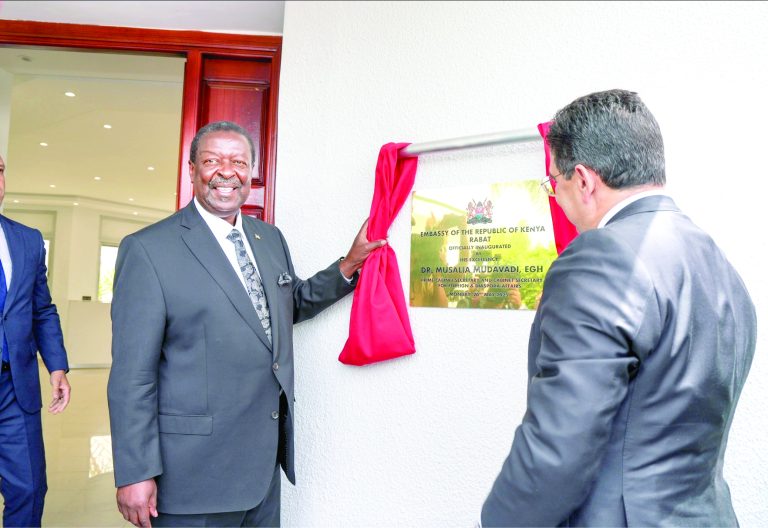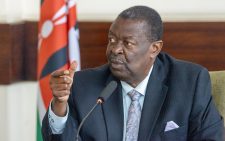Kenya-Morocco trade deal win-win for both

Kenya’s recent trade breakthrough with Morocco has stirred welcome excitement, and rightly so.
The new bilateral agreement, anchored on a shift in Nairobi’s diplomatic position on the Western Sahara issue, signals more than a diplomatic pivot – it marks the dawn of an era where economic pragmatism takes centre stage in shaping foreign policy.
At the heart of this deal is Kenya’s prized agricultural exports: tea and coffee.
Long celebrated as the lifeblood of rural economies, these commodities now stand to gain fresh momentum from the Moroccan market, which has been largely untapped.
Through high-level engagements led by Prime Cabinet Secretary Musalia Mudavadi, both nations have laid a clear framework for expanded trade, with Morocco committing to prioritise Kenyan farm produce.
In real terms, this means more market access, higher demand, and potentially better prices.
But this isn’t just about exports. It’s about broadening Kenya’s economic footprint and diversifying its global trade networks.
Morocco’s pledge to increase fertiliser exports to Kenya adds another crucial layer to this partnership.
With agriculture still a cornerstone of our economy, accessible and affordable fertiliser could help address persistent production challenges, lower input costs, and ultimately improve food security.
The agreement extends beyond agriculture. It opens doors to deeper cooperation in tourism, education, infrastructure, and renewable energy.
With Morocco’s strong tourism and infrastructure sectors and Kenya’s vibrant, youthful population and innovation-driven education ecosystem, the possibilities for mutual benefit are significant.
This strategic partnership also comes with an important diplomatic dimension.
For years, Kenya supported the Sahrawi Arab Democratic Republic’s quest for independence.
However, the recent recalibration to support Morocco’s autonomy plan reflects a broader shift in Kenya’s foreign policy: one that leans into economic diplomacy and regional influence.
By aligning with Rabat, Nairobi is not just picking sides; it’s placing economic resilience and regional integration at the forefront of its agenda.
Critically, this deal must be seen not just through a political lens, but through the eyes of ordinary Kenyans.
What does it mean for a tea farmer in Kericho? For a coffee grower in Nyeri? Or a young graduate seeking employment in the agribusiness value chain?
Simply put, it could mean better income, expanded opportunities, and improved livelihoods.
Reinstating direct flights between Nairobi and major Moroccan cities, as discussed during the talks, could further catalyse business and tourism, enhancing people-to-people ties and facilitating smoother movement of goods and services.
Of course, the success of this partnership hinges on consistent implementation and accountability.
It’s one thing to sign memoranda of understanding; it’s another to translate those signatures into real, tangible results.
Institutions on both sides must remain committed, transparent, and agile to ensure this historic pact lives up to its promise.
Additionally, it’s important that Kenya’s engagement with Morocco does not come at the cost of alienating other African partners.
Diplomacy is not a zero-sum game. As we pursue bilateral benefits, we must continue to champion African unity and constructive dialogue on long-standing conflicts, including the Western Sahara issue.
The writer is a Communications and PR practitioner















